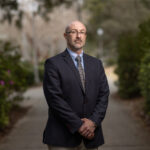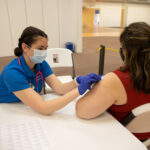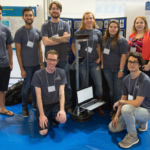Peer Critiques Create Healthy Stress in Nursing Students
Pensacola – Ten students in a senior-level nursing class called Patient Centered Care III gather around a table. They are preparing to do a cardiopulmonary arrest scenario in the Nursing Skills & Simulation Learning Center at the University of West Florida School of Nursing.
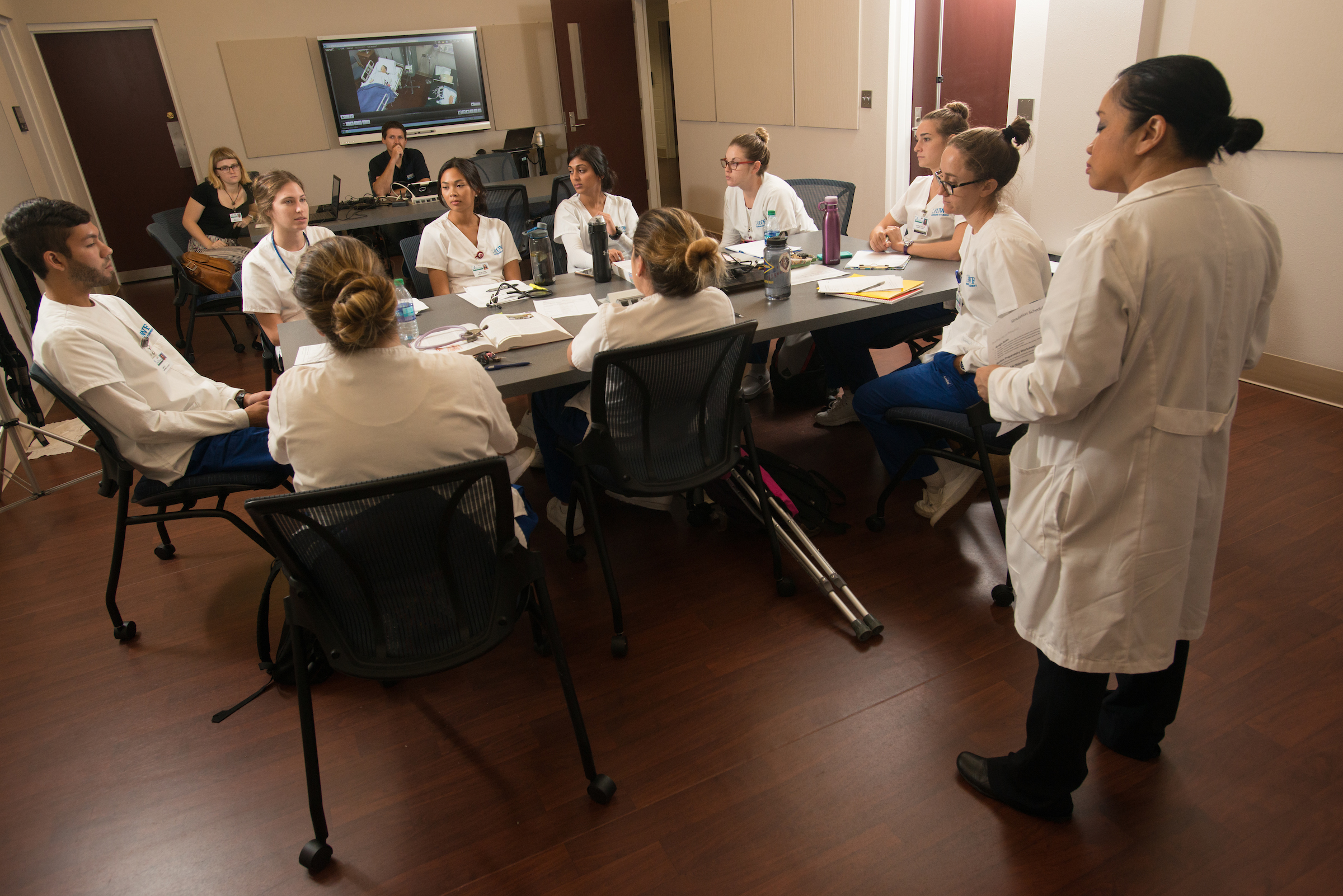
The patient in the scenario is the fictional Mr. Shapiro, a high-tech mannequin that is part of the learning center’s instructional equipment. First, the students get a simulated hand-off report from which they learn the details of Mr. Shapiro’s condition. Then, they plan and prioritize his care.
As the nurses review and discuss protocols before the simulation lesson begins, Dr. Eric Greska, assistant professor of exercise science at UWF, readies his equipment.
He will hook up each nursing student to a physiological monitor called a Bioharness. The Bioharnesses monitor heart rate, respiration and heart rate variability throughout the simulations, or “sims” as the nursing students and instructors call these sessions in the learning center.
Five of the students perform during the cardiopulmonary simulation, and five students watch. After the scenario, the 10 students reunite for a debriefing session during which they critique the five students who took care of Mr. Shapiro.
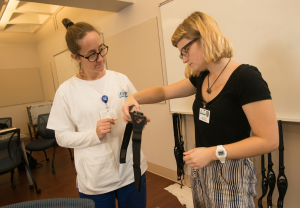
“When you are in the actual simulation you are just thinking, assessing and reacting to what is going on right in front of you at that moment,” said Molly Funck, a senior majoring in nursing. “During the debriefing you start to worry about what you could have done wrong or what you forgot to do.”
This is the third semester Greska has monitored the nursing students during sims, and his data indicates the students are more stressed during the debriefing session when they are critiqued by their peers and instructors than they are during the actual simulation.
“I am not surprised that people were more nervous in the debriefing session,” said Angel Hankee, a senior who is majoring in nursing. “That is the time when you start to think about what you might have missed and what you should have done.”
The fact that the nursing students are more stressed in the debriefing session than they are in the actual simulation indicates that the nursing students feel accountable for their actions, which is a positive outcome, Greska said.
“Simulation is a rich experience for the students and instructors because it exposes learning needs,” said Dr. Jill Van Der Like, who is director of the Nursing Skills & Simulation Learning Center. “We hope to identify those learning needs and attend to them so our students graduate with the confidence they need to care for patients in the complex health care setting.”
Van Der Like and her colleague from the nursing school, Dr. Lela Hobby-Burns, went to the Human Patient Simulation Network World Conference in Tampa in the spring. There they presented a poster on several ways that technology intersects with teaching in nursing curricula. The Bioharness research that Greska supervised was one of the projects described on Van Der Like’s and Hobby-Burns’ poster, which received second place at the conference.

